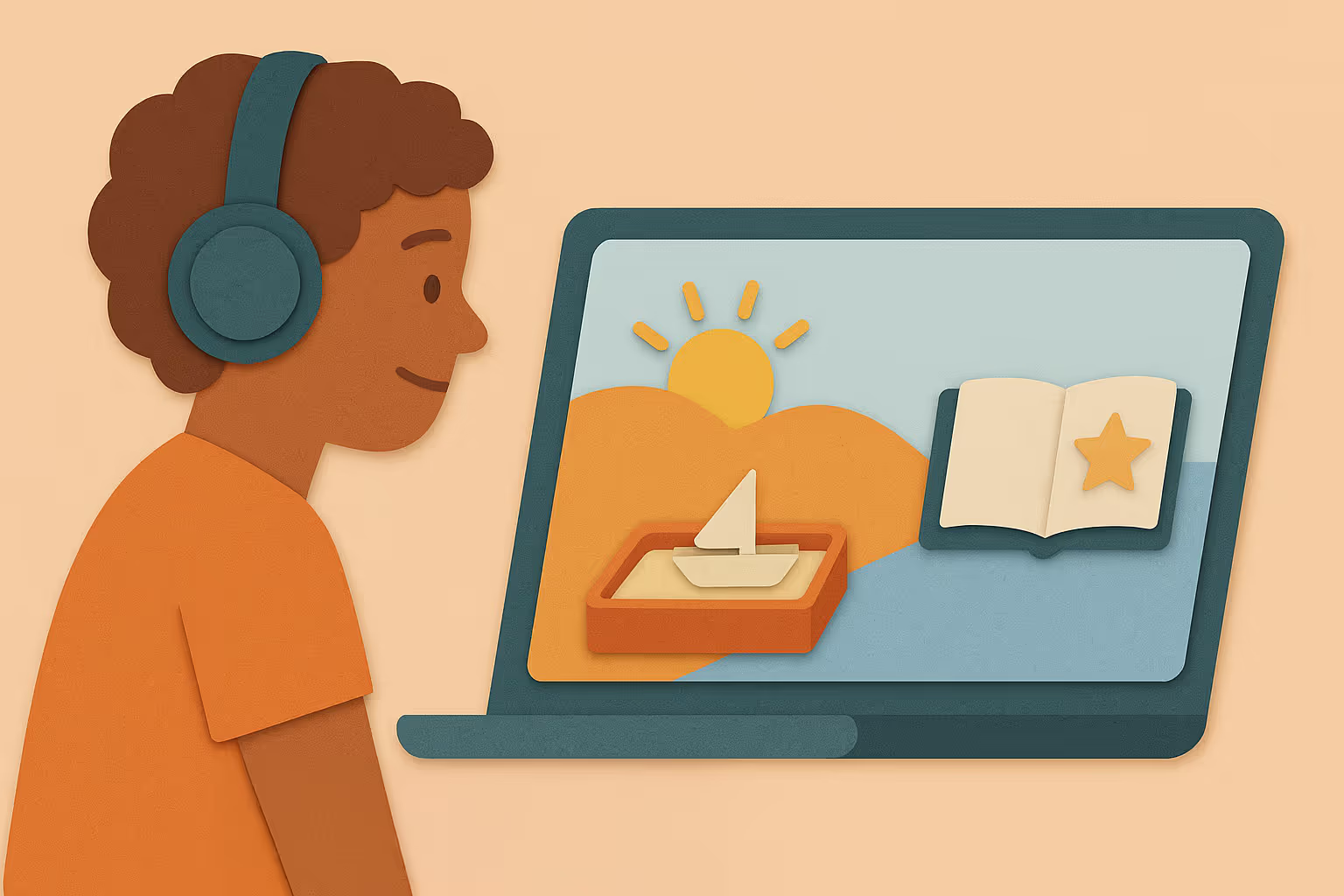The start of summer often brings a new energy into sessions. School is out, daily routines change, and the days feel longer even through a screen. For many clients, this change is a welcome break. For others, it may feel unsteady or disorienting. You might notice them acting differently, feeling restless, or talking less. Play themes may shift to things like vacations, changes, or even big feelings they’re still figuring out.
This is a great time to pause and reflect. What is changing in your client's world? What’s staying the same? And how can you use tools in PlaySpace to meet them where they are right now?
Summer often softens structure,and that can feel tricky for kids who usually depend on routines. A teen who normally picks action games might slow down and build a quiet scene in the dollhouse. Maybe school just ended, and they’re feeling tired or unsure about what summer will bring. That shift in play can tell you a lot about where they are emotionally. Another might use the sandbox to show a trip they wish they could go on, offering a safe way to talk about disappointment or change.
During summer, it helps to leave more room for open-ended play. Let clients lead. Even small choices like changing the scene or picking a new character can show how they’re adjusting.
Let the playroom speak: Clients might not always have words for how they feel about summer. Their choices in PlaySpace can say a lot. Watch what they create, it often gives clues.
Go back to shared routines: If a client’s usual school-year rhythm has been lost, revisit grounding activities you’ve developed together. These small routines build safety, even when the outside world feels less structured.
Talk with caregivers on summer transitions: If sessions feel different, it might be worth checking in with parents or caregivers. Are routines changing at home? Are there new stressors? You can work together to build support at home like using storybook themes between sessions to keep therapy going.
The beginning of summer is not just a time to slow down. It is also a chance to imagine new ways to connect. Maybe they’re building a dream vacation, talking through what’s hard, or just playing more freely than usual. All of that is still meaningful work.
As a therapist, you don’t have to push for big breakthroughs right now. Instead, you can observe, adapt, and stay steady through the natural rhythm of the season. PlaySpace gives you the tools to do just that, with the structure clients need and the space to meet them where they are.

Lorem ipsum dolor sit amet, consectetur adipiscing elit, sed do eiusmod tempor incididunt ut labore et dolore magna aliqua. Ut enim ad minim veniam, quis nostrud exercitation ullamco laboris nisi ut aliquip ex ea commodo consequat. Duis aute irure dolor in reprehenderit in voluptate velit esse cillum dolore eu fugiat nulla pariatur.
Block quote
Ordered list
Unordered list
Bold text
Emphasis
Superscript
Subscript
.avif)